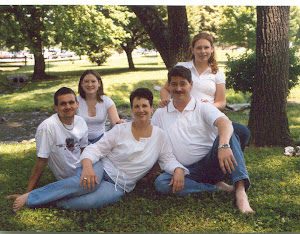As a writer, I am intrigued about the English language. There used to be a sentiment in America that if you immigrate to this country, you should be glad to learn the language and assimilate into the American culture. Things have changed. No other country in the world but in America is there a belief that the country's official language is unimportant enough to learn if you are an immigrant.
If you were to go to Germany, Japan, China, the Middle East or any other Non-English speaking country, you would be expected to learn the language or hire an interpreter to get along. Not in America. We demand our citizens learn other languages even if we never intend to leave our native soil. We print all government publications in about 35 languages (try that in any other country) and every phone call to nearly any business is answered bilingually--the one that gets me is when I have to push "1" to speak English!!
Yes, it makes us all mad that we would be required to learn the native language but we do not require the same of other countries. When our grandparents came to America, if they didn't assimilate the language, they didn't work, eat or get ahead in any way. In short, they had to learn the language or they and their family suffered.
My wife and I were talking the other day as I was editing the chapters of my new book, Chance of a Lifetime, due out sometime next year. In the defense of all immigrants, English is the most complicated language in the world. I have studied Italian and Spanish and their sentence structure is much less complicated. For example: In English, you might say "I am hungry." In Italian, it would be "Ho fame" or literally, I am famished. In English it would be "Let us eat." In Italian, "Mangia."
The English takes way too many words to say the same thing as most other languages.
Even the English speaking countries are better at English than we are. The British spell things the way they sound. Socialise; Defence; Offence; Kerb (curb); The British often end words with 'our' or a dangling 'e' such as colour and theatre rather than the American color and theater. But, hey they British have been around longer so they get to choose the correct English spelling.
With that said, I began to think of American English words that make no sense to me. I am listing a few here as my defence. Take the word 'route' many in the US pronounce this word as 'root' which makes no sence to me. If route is pronounced root, then why is not trout pronounced 'troot'? Or why, if route is pronounced root, is not pout pronounced 'poot'? See where I am coming from?
There is a county in Tennessee spelled Blount, after Governor William Blount. The name Blount is pronounced 'Blunt', as with a cigar or being to the point. So I ask you if Blount is pronounced blunt, how does one pronounce count? And if count is pronounced 'count' why would not Blount be 'blount', to rhyme with count?
Getting back to the route of the problem, if a baseball game is a rout (pronounced rout) then how can route be pronounced 'root'? And if a tree has a root, why is it not spelled 'routes'?
If I comes before E unless after C, then how can my neighbor seize the glacier at the height of the day? I read a cuneiform that weighed heavily on the fancier science. It was really weird.
One last thing I fail to understand about the English language. When we were growing up, the hard fast rule was that vowels were "A', 'E', 'I', 'O', 'U' and sometimes 'Y'. Just when the Hell did 'W' become a vowel? Don't believe me? I was playing Words with Friends and my opponent got a triple word score for the word Cwm--pronounced 'coom' and meaning a valley. I guess that I need to find a round rwm and sweep the corners with a brwm. It is no wonder the English language is dwmed. I can't blame immigrants for keeping their own language, English is just tw hard.
I Owe My Soul
to Mastercard
Recommends:
By Diesel
Buy New $11.95

